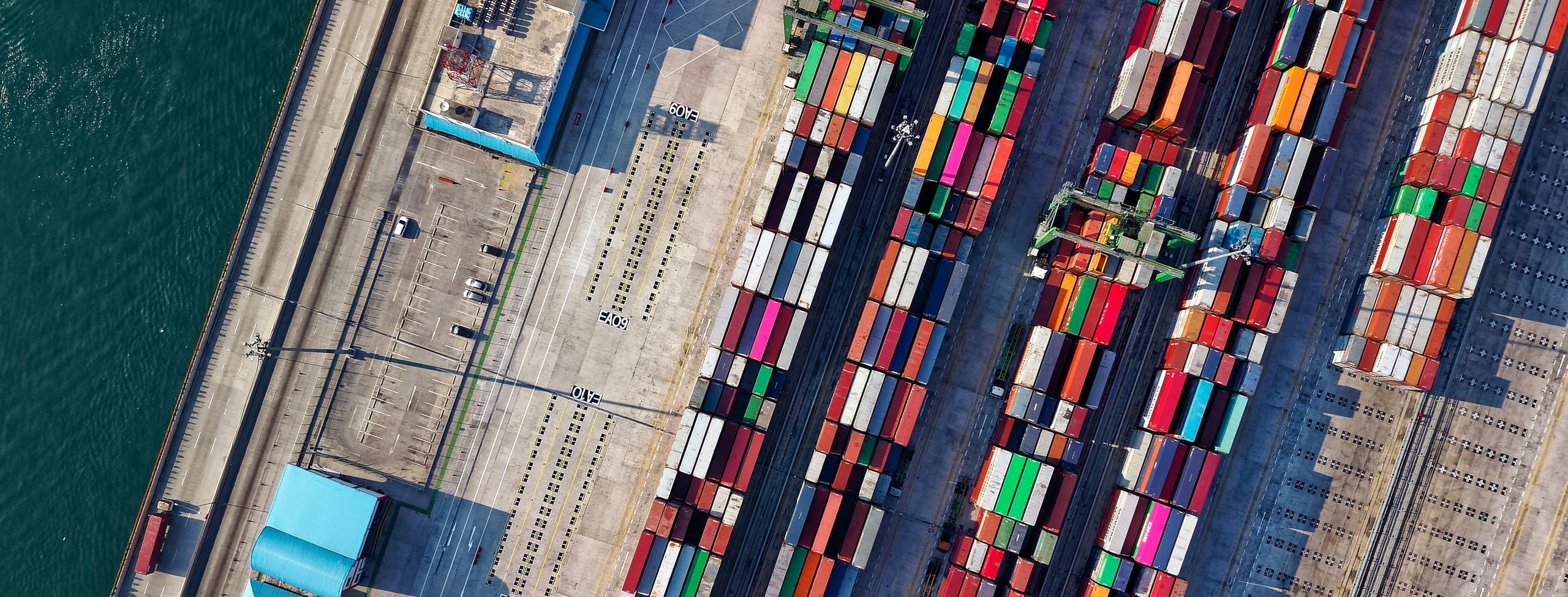
22 November 2024 • 27 minute read
Horizon – News and Trends in Sustainability Law
US election update
US election’s impact on sustainability: Navigating the shifting landscape.
The sustainability landscape – both domestically and internationally – is expected to be significantly impacted by the outcome of the US election. With Republicans in control of all three branches of the federal government, the US regulatory landscape will likely see substantial rollbacks in climate and sustainability policies.
In particular, the SEC’s climate rules could face delays or even reversals once the agency comes under new Republican leadership. Additionally, Donald Trump’s promise to dismantle the Inflation Reduction Act (IRA) will likely impact green investments and clean energy, although bipartisan support for key infrastructure and tech initiatives like the CHIPS Act might continue to promote some clean energy advancements. On the financial front, Trump’s skepticism of sustainability investments could lead to restrictions on ERISA funds, potentially curtailing sustainable investment strategies. Internationally, Trump’s pledge to withdraw from the Paris Agreement once again could hinder global climate commitments, potentially suspending climate aid and emission reduction goals. In the states, we expect anti-sustainability efforts from conservative states to continue while left-leaning states such as California, New York, and Washington are expected to expand sustainability initiatives.
Importantly, global companies will still need to comply with international regulations like the EU’s Corporate Sustainability Reporting Directive (CSRD) as well as California’s climate disclosure laws, ensuring that sustainability considerations remain a significant factor despite the changing US political winds.
Washington’s Climate Commitment Act survives ballot-box challenge.
On Election Day, voters in Washington state upheld the state’s landmark Climate Commitment Act, voting no on a ballot initiative that sought to overturn it. The Climate Commitment Act requires businesses that emit at least 25,000 metric tons of CO2, or the equivalent in other GHGs including methane, to pay for the right to do so by buying allowances through a cap-and-invest program. The number of available allowances falls every year, in theory prompting companies to find ways to cut emissions. Voters were asked to vote yes or no on Initiative Measure No. 2117, which would have prohibited state agencies from imposing any type of carbon tax credit trading and would have ended the cap-and-invest program. Of the 2.5 million voters who responded to the ballot initiative, more than 60 percent said no.
Voters also weighed in on sustainability initiatives in other states.
California voters passed Proposition 4, which will create a $10 billion bond for environmental and climate projects, while rejecting Proposition 6, which would have ended forced labor in California prisons; Colorado passed an initiative committing revenues from sports betting to water conservation projects; Louisiana passed a constitutional amendment requiring tax revenue from offshore energy generation to go into a fund for coastal restoration; Minnesota approved a constitutional amendment committing at least 40 percent of state lottery revenue to environmental grants and programs until 2050; Rhode Island approved bond measures to fund climate adaptation; and South Dakota voters rejected a measure that would have eased permitting requirements for the Summit Carbon Solutions CO2 storage pipeline.
COP 29 update
COP 29 – advancing global climate agreements
Here are a few key themes underway at the 2024 United Nations Framework Convention on Climate Change (COP 29), taking place in Baku, Azerbaijan November 11-22, 2024.
- Renewing national climate commitments: In preparation for COP 30 in 2025, countries are expected to prepare updated Nationally Determined Contributions (NDCs). Because current commitments fall short of limiting global warming to 1.5°C, there is pressure to adopt more ambitious emission reduction targets
- Revamping climate finance goals: Discussions focus on expanding the New Collective Quantified Goal (NCQG) for climate finance, ensuring sufficient funding for adaptation and resilience in vulnerable nations, while addressing trust and equity issues between developed and developing countries.
- Establishing robust carbon markets: COP 29 aims to finalize clear rules for carbon trading under Article 6 of the Paris Agreement, promoting transparency and effectiveness in emissions offset mechanisms to unlock global low-carbon investments
- Operationalizing the Loss and Damage Fund: Delegates are working to set up governance structures and mobilize resources for the fund, ensuring timely financial support for nations facing severe climate disasters.
- Integrating nature-based solutions: COP 29 is placing a stronger emphasis on scaling-up strategies like reforestation and wetland restoration, which offer dual benefits for emissions reduction and biodiversity conservation.

Disclosures
California AB 3234, imposing transparency requirements on voluntary social compliance audits, goes into effect January 1.
California’s AB 3234, requiring businesses to publicly share results of their voluntary, non-governmental social compliance audits, goes into effect January 1, 2025. It defines a social compliance audit as a “voluntary, nongovernmental inspection or assessment of an employer’s operations or practices to evaluate whether the operations or practices are in compliance with state and federal labor laws, including, but not limited to, wage and hour and health and safety regulations, including those regarding child labor.” Under the law, employers that choose to carry out such audits will be required to conspicuously post certain information related to the audits on the company website. While AB 3234 does not impose a substantive requirement to conduct such audits, it does require that companies disclose this information where applicable.
SEC Risk Alert for registered investment companies questions disclosures related to sustainability investing.
A Risk Alert issued early this month by the SEC discusses common issues its Division of Enforcement has encountered in its oversight of registered investment companies. The Risk Alert cites “deficiencies or weaknesses” in the ways funds discuss sustainability factors in their investment strategies. It offers the example of marketing materials, such as websites and sales literature, that “appeared to contain untrue statements or omissions of material fact,” particularly noting that funds “mischaracterized the use of environmental, social, and governance factors in their investment decision-making processes compared to their actual practices.” Over the last two months, the SEC has continued to pursue companies for greenwashing even after quietly disbanding its sustainability Enforcement Task Force. In October, for instance, it announced that investment advisory firm WisdomTree Asset Management Inc. agreed to pay $4 million to settle charges that it misleadingly marketed three exchange-traded funds as having an sustainability investment strategy. With the incoming new Administration, it remains unclear whether the Division of Enforcement would continue its scrutiny on how funds discuss sustainability factors in their investment strategies.
Ahead of first CSRD reporting due date, ESMA releases statement on enforcement priorities for 2024 financial reports.
The European Securities and Markets Authority (ESMA) has released its annual statement on European Common Enforcement Priorities (ECEP) for the 2024 annual financial reports of issuers admitted to trading on European Economic Area-regulated markets. The statement comes just ahead of the 2025 due date for the first set of reports under the Corporate Sustainability Reporting Directive (CSRD). ESMA is prioritizing three areas for enforcement oversight: material assessments, in light of requirements under the European Sustainability Reporting Standards; the scope and structure of sustainability statements – ensuring that information is quantifiable, consistent, and appropriately explained; and the accuracy of disclosures under Article 8 of the EU Taxonomy Regulation, which sets out harmonized criteria for determining whether an eligible economic activity qualifies as environmentally sustainable. In the statement, ESMA warns that “enforcers will take enforcement actions whenever material misstatements are identified.” It also advises that national enforcers may pursue their own additional priorities. See the annual statement here, and see our explanation of the CSRD here.
Voluntary reporting frameworks
EFRAG and CDP say they are well aligned.
The European Financial Reporting Advisory Group (EFRAG) and environmental disclosure nonprofit CDP announced on November 12 that they have arrived at a high degree of interoperability between CDP’s disclosure platform and the EU’s recently adopted European Sustainability Reporting Standards (ESRS). The announcement arose from a year-long data mapping effort to maximize alignment between the CDP platform and ESRS. CDP’s disclosure platform, based on what the charity calls a “write once, use many” approach, helps companies reduce their reporting burdens across multiple sustainability reporting standards. In 2023, more than 23,000 companies disclosed through CDP, up 24 percent from 2022; these reporting companies represent more than 66 percent of global market capitalization and 90 percent of European stock market listed companies. Patrick de Cambourg, chair of the EFRAG Sustainability Reporting Board, stated that the findings reported in the announcement are “a major step forward” for efficient, straightforward digital reporting.

Greenwashing
LA County lawsuit takes on plastic producers, but New York dismissal signals hurdles.
Two recent developments in the rapidly evolving area of plastics litigation illustrate the growing trend of states and municipalities pursuing plastic packaging producers in court, while also highlighting the significant headwinds those plaintiffs may face. A case in Los Angeles County lawsuit claims that responsibility for the environmental impacts of plastic pollution in California rests in part with food and beverage companies that market their packaging as recyclable and that such marketing is inherently misleading. Meanwhile, a New York court granted PepsiCo’s motion to dismiss a similar suit. Our alert tells you more.
Putative class action alleges greenwashing by a feminine care company.
A putative false advertising class action filed in the US District Court for the Northern District of California alleges that the Honey Pot Company is greenwashing its line of feminine care products. Honey Pot manufactures an array of products ranging from pads, tampons, and liners to body washes, moisturizers, and wipes and advertises that all its products include “plant-derived” ingredients. That claim, the lawsuit says, amounts to greenwashing; the plaintiffs charge that the company is aiming to “hoodwink consumers into believing they are buying natural and eco-friendly products while, in fact, they are not.” Both the plaintiffs said in their complaint that the Honey Pot products they purchased contained synthetic chemicals that were not derived from plants. The Honey Pot website states that “the quantity of the plant or plant-derived ingredients represents at least 50% of the total formula or materials.” The plaintiffs are seeking class certification asserting multiple causes of action under the California and New York consumer protection statutes.
EY survey: CFOS worry that questionable nonfinancial data could open gates to greenwashing charges.
The majority of corporate finance leaders are worried about the credibility of the nonfinancial data in their sustainability reporting, and the consequent risk that their companies could be accused of greenwashing, according to EY’s 2024 Global Corporate Reporting Survey. The report, issued in late October, surveyed 2,000 corporate finance leaders across 30 countries, including CFOs and financial controllers, as well as 815 institutional investors. Of the financial leaders surveyed, fully 96 percent reported issues arising from the nonfinancial data they are provided for reporting - only 4 percent of respondents said they had not encountered problems with the integrity of such data. About 55 percent said such problems are undermining the credibility of sustainability reporting in their industry, potentially creating exposure to litigation. The institutional investors, notably, told EY they were confident that emerging reporting regulations and standards would help – nearly 80 percent said those developments could improve the comparability and accuracy of companies’ sustainability disclosures. Another revelation in the report: growing skepticism that company climate targets are achievable. “Only around half of finance leaders and investors surveyed think it is very likely that corporates will achieve their stated sustainability targets,” said EY. The report comes as both regulators and investors are looking more closely at nonfinancial value drivers – indeed, 69 percent of the finance leaders told EY that investors’ questions about such drivers most frequently focus on sustainability. CFOs, furthermore, said that hiring an sustainability controller would help companies better understand investor requirements, integrate sustainability into financial decision making, and reset the quality of nonfinancial reporting. See the report here.

Sustainability: regulatory
California delays cap-and-trade rulemaking to 2025.
The California Air Resources Board (CARB) has postponed its cap-and-trade rulemaking process to early 2025, rather than starting this fall as initially planned. This delay impacts the state’s efforts to reduce greenhouse gas emissions by limiting the supply of emissions permits to achieve a 48 percent reduction below 1990 levels by 2030. The proposed changes are critical for high-emitting industries like refineries and utilities that rely on these permits, as well as for funding state programs like electric vehicle infrastructure. Recent market uncertainty, including falling permit prices and concerns raised in recent legislative discussions, contributed to the decision. CARB plans to release proposed amendments next year, followed by a public comment period and legislative discussions on reauthorizing the program set to expire in 2030.
EPA finalizes Waste Emissions Charge, AKA the methane fee.
Implementing Congress’s directive in the 2022 Inflation Reduction Act, the EPA has finalized the Waste Emissions Charge (WEC), nicknamed the methane fee rule, which affects oil and gas facilities that report methane emissions of more than 25,000 metric tons of CO2 equivalent per year, beginning with emissions reported in calendar year 2024. By imposing the fee Congress aimed to cut waste, encourage the use of pollutant-cutting technologies, and better ensure that natural gas reaches the market rather than escaping into the atmosphere. The WEC is slated to appear on balance sheets in 2025 at $900 per metric ton of such emissions, rising to $1,200 for CY 2025 and $1,500 for CY 2026 and beyond. It is expected that industry groups will likely challenge the rule in court. Moreover, as commentators around the world are noting, the methane fee program could be scrapped by the next Congress in the months ahead.
Illinois bill banning carbon sequestration activities near sole-source aquifers stalls in state senate.
The Illinois legislature has paused its consideration of a bill to ban carbon sequestration activities over, under, or through any sole-source aquifer in Illinois has stalled in the state senate. Senate President Don Harmon (D-Oak Park) asked the Senate Executive Committee to table the bill for now while lawmakers work to understand the carbon injection process and its potential environmental risks. The bill sought to address concerns about the safety of the Mahomet Aquifer, the sole source of drinking water for more than 500,000 residents across 14 central Illinois counties. Senator Paul Faraci (D-Champaign), one of the bill’s sponsors, said that while federal protections exist for groundwater, concerns remain about the long-term safety of underground carbon storage. He cited growing calls among his constituents for state legislation to specifically protect the aquifer. Earlier this year, Illinois enacted the SAFE CCS Act, regulating future carbon sequestration projects; the Act includes a two-year moratorium on pipeline projects for transporting captured carbon to storage sites in Illinois. Senate President Harmon proposed using that two-year moratorium to “get to a good and durable solution to the problem that is based on science.”
Canada proposes capping oil and gas sector GHG emissions at 35 percent below 2019 levels.
The Government of Canada has released draft regulations that would cap emissions of greenhouse gases (GHGs) from the oil and gas sector at 35 percent below 2019 levels by 2030. The regulations would create a cap-and-trade system prohibiting operators from emitting GHGs from specified activities in the sector, unless the operator registers with the government; the government intends to allocate annual emissions allowances to producers equal to emissions cap, giving out fewer allowances over time in alignment with Canada’s climate goals and rewarding better-performing companies. The government also intends to establish operator access to a limited number of compliance flexibility units. This plan, the government hopes, will incentivize firms to make their production processes cleaner. Producers would be required to begin reporting emissions and production in this period between 2026 and 2029, starting with large emitters reporting their 2026 emissions in 2027. Allowances would be distributed starting in 2029 for 2030. Federal Environment Minister Steven Guilbeault said the aim of the proposed regulations is to encourage oil and gas producers to invest their profits in decarbonization. A 60-day consultation is open until January 8, 2025. Canada is the world's fourth largest producer of oil and the sixth largest producer of natural gas, and according to the country’s National Greenhouse Gas Inventory, the sector accounts for more than 30 percent of Canada’s GHG emissions.
EU insurance regulator proposes higher capital requirements for fossil fuel investments due to transition risks.
The European Insurance and Occupational Pensions Authority (EIOPA) has recommended that the EU introduce higher capital requirements for fossil fuel investments held by insurers, citing elevated transition risks associated with these assets as economies shift toward decarbonization. According to EIOPA’s report, insurers could face increased capital charges of up to 17 percent for fossil fuel-related stocks and up to 40 percent for bonds to safeguard against potential investment losses due to stranded assets. The report, commissioned by the European Commission, highlights the need for insurers to better align their capital reserves with climate risks while recognizing that current measures and data collection for social risks remain insufficient for prudential adjustments. The recommendations are now under consideration by the European Commission for potential policy implementation.
UK to increase Plastic Packaging Tax rate.
The UK’s Autumn Budget confirms that the Plastic Packaging Tax rate will increase for 2025-26, in line with Consumer Price Index inflation for 2025-26, to maintain the real terms value of the tax and continue to incentivize the use of recycled plastic in packaging. Businesses will be allowed to use a mass balance approach to evidence recycled content in chemically recycled plastic. Plastic packaging components containing at least 30 percent recycled plastic are exempt from PPT.
Sustainability: litigation
California climate disclosure laws survive for now as Chamber of Commerce v. CARB moves forward.
The District Court for the Central District of California has granted the California Air Resource Board’s request for discovery in Chamber of Commerce of the United States of America et al. v. California Air Resources Board et al., one of several suits seeking to overturn the state’s landmark corporate climate disclosure laws, and has denied the plaintiffs’ request for a motion for summary judgment, finding there are “genuine disputes of material fact that preclude” it from ruling on such motions. The plaintiffs allege that the two laws violate the First Amendment, the Supremacy Clause, and the Constitution’s limitations on extraterritorial regulation. Without discovery, the court stated, it did not have sufficient information to determine “which of the laws’ applications violate the First Amendment,” and to “measure the constitutional against the unconstitutional applications.” While the court denied the motion for summary judgment, it did observe that the First Amendment could be applicable, stating that there “can be no dispute that the primary effect – and purpose – of SBs 253 and 261 is to compel speech.” Discovery, the court said, would help it determine the appropriate level of scrutiny to apply. California’s SB 253 and SB 261 impose annual climate-related disclosure requirements, starting in 2026, on large companies that do business in California and meet certain annual revenue thresholds. In the short term, the plaintiffs will likely refile for summary judgment after discovery; observers are noting that this case will likely continue for many months. The outcome of this case could affect the development of similar legislation in other states as well as reporting requirements for most large US public and private companies. See our alert on SB 253 and SB 261.
Records company sues Oklahoma treasurer on Open Records Act grounds.
Citing the state’s Open Record Acts, FOIA Professional Services, LLC has filed suit against the Oklahoma State Treasurer and certain of its affiliates, alleging that they withheld and possibly destroyed documents related to the enforcement of the state's Energy Discrimination Elimination Act of 2022. That act is one of several similar state laws that generally premise that when financial firms take climate change into account in their investment guidance, they are pursuing a leftist social agenda. Specifically, it prohibits Oklahoma state and local governments from entering into contracts worth $100,000 or more with companies that the Oklahoma Treasurer's Office has found to be "boycotting" the fossil fuel industry. The Energy Discrimination Elimination Act was permanently blocked by the Oklahoma County District Court in July. Based in Alabama, FOAI Professional Services handles the requesting process for companies seeking access to information made legally available by the federal Freedom of Information Act.

Supply chain integrity
EU approves forced labor regulation.
The European Union on November 19 approved a regulation forbidding any products in the EU market that are made using forced labor. The legislation will go into effect the day after it is published in the Official Journal of the European Union and will apply three years after that. Member states will use that three-year period to begin implementing the law, and the EU will create a database of forced labor risk areas and products to support competent authorities in their assessments of possible violations.
European parliament approves delaying EUDR compliance.
The European Parliament has voted to postpone and amend provisions of the Regulation on Deforestation-Free Products (EUDR), a law prohibiting the import of commodities such as soy, beef, palm oil, and coffee unless they are certified as deforestation-free. The EUDR’s due diligence obligations were set to go into effect on December 31, 2024, but in November the European Council Parliament approved delaying compliance with those obligations by one year, explaining that the extra 12-month phasing-in period would to “ensure proper and effective implementation.” The final text will need to be formally adopted by members of the European Parliament during the plenary session scheduled for December 16-19, 2024. Companies should closely monitor this development and adopt a cautious approach to ensure compliance. See our alert, European Union Deforestation Regulation: What US companies should know.
Textile companies added to UFLPA Entity list.
On November 1, the US Department of Homeland Security (DHS) announced it has added several Chinese textile companies to the Uyghur Forced Labor Prevention Act (UFLPA) Entity List over allegations of human rights abuses in China's Xinjiang region: Esquel Group; Guangdong Esquel Textile Co., Ltd.; and Turpan Esquel Textile Co., Ltd. Also, Changji Esquel Textile Co., Ltd., which was previously added to the UFLPA Entity List, was removed from its original criteria for listing and added to another. This brings the total number of companies on the Entity List to 78, across a range of sectors, among them seafood, electronics, polyvinyl chloride, appliances, steel, chemicals, household appliances, and electronics, and it builds on the DHS Textile Enforcement Plan, which the department describes as “an enhanced strategy to combat illicit trade and level the playing field for the American textile industry.”
Key takeaways from Canada’s annual report on forced labor and child labor in supply chains.
Canada’s Supply Chains Act, which came into force on January 1, 2024, requires certain entities and government institutions to report annually on their efforts to prevent and reduce risks of forced labor and child labor in their supply chains. Public Safety Canada’s first annual report on the Act presents quantitative data collected through the mandatory online questionnaire completed by reporting entities prior to submitting their annual reports. The report comes as the government is finalizing updated guidance, still to be issued this year, to help companies in the 2025 reporting cycle. The next deadline for filing reports under the Supply Chains Act is May 31, 2025, and Public Safety Canada starts accepting the next cycle of reports from January 1, 2025. To further clarify this process, on November 15, 2024, the government published new guidance, the details of which will be addressed in an upcoming client alert. Canada is also reiterating its commitment to eradicate forced labor from the global supply chain in other ways. The comment period recently closed for a government consultation seeking stakeholder views on additional measures to strengthen enforcement of the Customs Tariff, which bans importation of products mined, produced, or manufactured by forced or child labor.
Sustainability in the marketplace
Insuring against carbon credit fraud.
Global insurance broker Marsh and We2Sure, which offers sustainability-focused insurance services, will offer a new insurance facility to protect businesses in the UK, EU, and US from fraud in the voluntary carbon market (VCM). One consequence of the growth of the VCM is rising carbon credit certificate fraud – involving the sale of counterfeit certificates, or certificates for carbon-capture projects that fall short or that do not exist. Rupert Poland, Marsh’s digital asset leader for the UK, stated that the insurance “will not only help de-risk investments for businesses from a financial and reputational perspective, but also support the integrity and expansion of the wider carbon credit ecosystem.” Before purchasing credits, furthermore, businesses will be able to access We2Sure’s proprietary technologies: CarbonActuator, which assesses the validity of certificates, and satellite and AI technology which monitors projects in real time. The facility is backed by insurers Brit, Sompo, and Talbot.
EY report reveals gaps in climate disclosures and transition plans among global companies.
According to EY’s latest Global Climate Action Barometer, nearly two-thirds of companies are still not disclosing the financial impact of climate change in their financial statements, with only 36 percent referencing climate risks. While 94 percent of the assessed companies address climate disclosures based on TCFD recommendations, the quality remains low - the average score for disclosure quality is just 54 percent. The report highlights a focus on Scope 2 emissions reduction (from purchased energy), with limited action on broader Scope 3 value chain emissions, despite these representing the majority of most companies’ carbon footprints. Furthermore, while 83 percent of companies have set short-term targets, only 51 percent have set goals beyond 2030, and less than a quarter have validated their targets through the Science Based Targets initiative. The study underscores a significant gap between climate ambitions and actionable plans, particularly on Scope 3 emissions, as firms address such challenges as costs, technological limitations, and political pressures, any of which may hinder meaningful progress on decarbonization. Read the report here.
Accenture report highlights slow progress on value chain emissions targets amid net zero goals surge.
Accenture’s latest study, Destination Net Zero, reveals that while more of the world’s largest companies are setting ambitious net zero targets for their own operations, progress on broader value chain (Scope 3) emissions reductions has stalled. The study found that 65 percent of companies now have operational net zero targets, up from 54 percent in 2023, but only 37 percent cover Scope 1, 2, and 3 emissions, indicating a slowdown in tackling complex supply chain emissions. Companies are increasingly using various decarbonization tools like energy efficiency and waste reduction, yet challenges remain, especially in hard-to-abate sectors. Notably, AI is emerging as both a contributor to emissions and a potential tool for climate action, though its use in decarbonization remains limited. Accenture emphasizes that to achieve net zero by 2050, companies must accelerate collaboration and leverage transformative technologies responsibly.

Calendar
Key global reporting deadlines
Click on each icon to learn more.
Deadlines
- US: California Transparency in Supply Chains Act – annually based on the company’s internal annual publication deadline
- Canada: Bill S-211, Fighting Against Forced Labor and Child Labor in Supply Chains Act – annually on May 31
- EU: Taxonomy Regulation
- NFRD obliged companies – financial years starting on or from January 1, 2024 (with reports due in 2025/2026)
- Large undertakings and parents of large groups – financial years starting on or from January 1, 2025 (with reports due in 2026)
- EU: Corporate Sustainability Reporting Directive (CSRD)
- Large EU Public Interest entities (NFRD obliged) – January 1, 2024 (with reports due in 2025) and then annually
- Large EU undertakings and parents of large EU groups – January 1, 2025 (with reports due in 2026) and then annually
- Non-EU parent companies – January 1, 2028 (with reports due in 2029) and then annually
- EU: Deforestation Regulation – the regulations will substantively apply from December 30, 2024 onwards.
- EU: Corporate Sustainability Due Diligence Directive (CSDDD)
- 2027 for companies with 5,000+ employees and €1.5 billion
- 2028 for companies with 3,000+ employees and €900 million net turnover and
- 2029 for all other companies that fall within the scope of the CSDDD.
- UK: Modern Slavery Act, Transparency in Supply Chains Act – annually. Companies should publish their statement as soon as possible after their financial year end, which is expected to be, at most, within six months of the organization’s financial year end. Companies may wish to publish these statements at the same time as they publish other annual accounts.
- Germany: Act on Corporate Due Diligence Obligations in Supply Chains
- Phase 1 – June 1, 2025
- Phase 2 – annually on January 1
- Switzerland: Due Diligence and Transparency in Relation to Minerals and Metals from Conflict-Affected Areas and Child Labor – annually on June 30
- Norway: Transparency Act – annually on June 30
- Australia: Modern Slavery Act
- If the business reporting date is based on calendar year (ie, January 1 to December 31), then the reporting deadline is annually on June 30
- If the business reporting date is based on Australian financial year (ie, July 1 to June 30), then the reporting deadline is annually on December 31
- If the business reporting date is based on Foreign Financial Year – including United Kingdom and Japan (ie, April 1 to March 31) – then the reporting deadline is annually on September 30
Coming events
- Register here for Making Sustainability Sustainable: laying the foundations for future success, taking place in London on November 26, a full-day DLA Piper seminar exploring sustainable practices and strategies for the Consumer Goods, Food, and Retail sector.
- The 2024 United Nations Climate Change Conference (COP 29) is taking place through November 22, 2024 in Baku, Azerbaijan.
- The 13th United Nations Forum on Business and Human Rights will be held November 25 – 27, 2024, both hybrid and in-person, in Geneva, Switzerland.
- The 16th session of the UN Convention to Combat Desertification takes place December 2 – 13, 2024 in Riyadh, Saudi Arabia.
- SF Climate Week will take place April 19 – 27, 2025 in San Francisco.
- The 2025 UN Ocean Conference will be held June 9 – 13, 2025 in Nice, France.
- Climate Week NYC will take place September 21 – 28, 2025 in New York City.
- The 2025 United Nations Climate Change Conference (COP30) will be held November 10 – 21, 2025 in Belém, Brazil.





